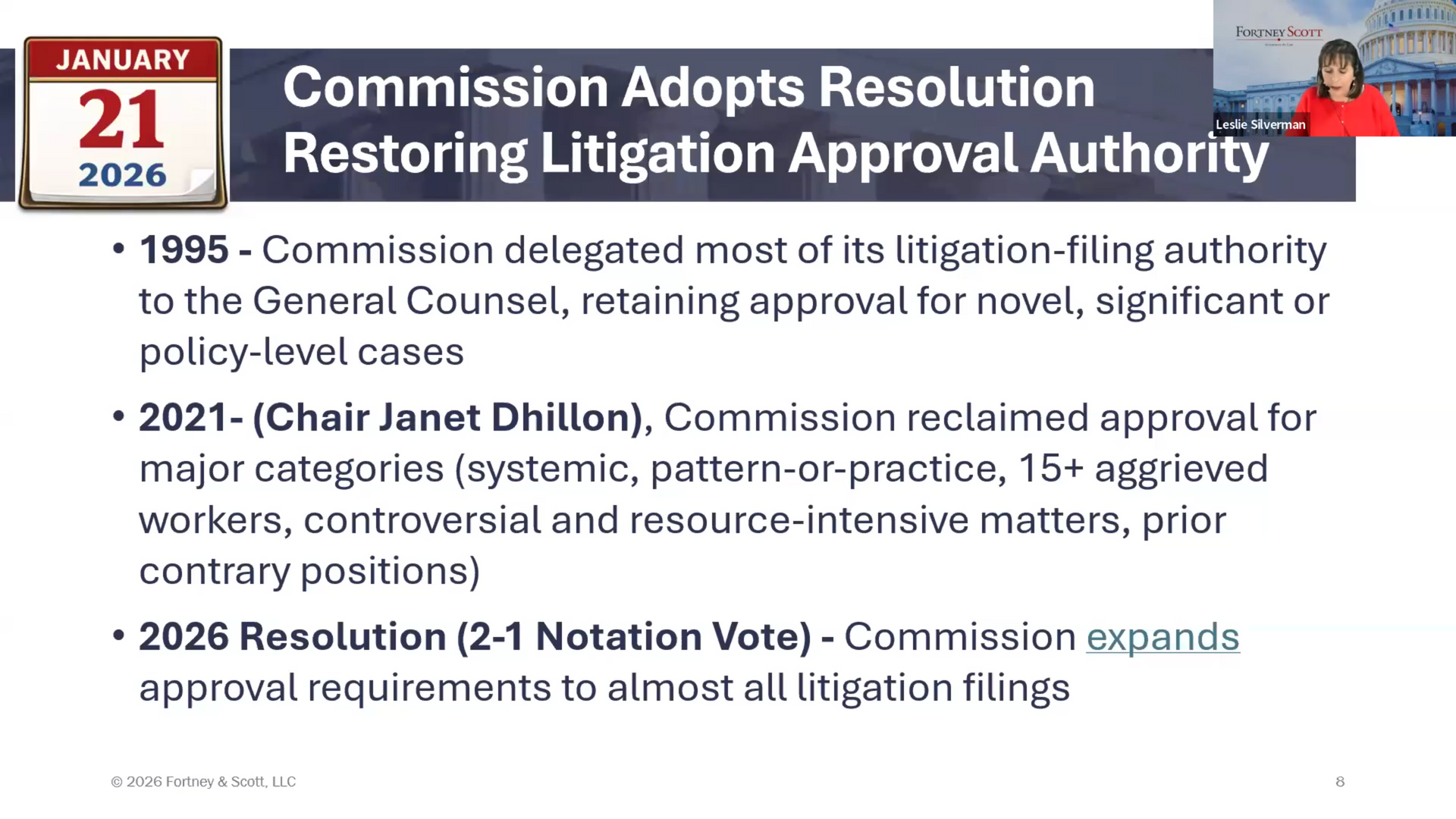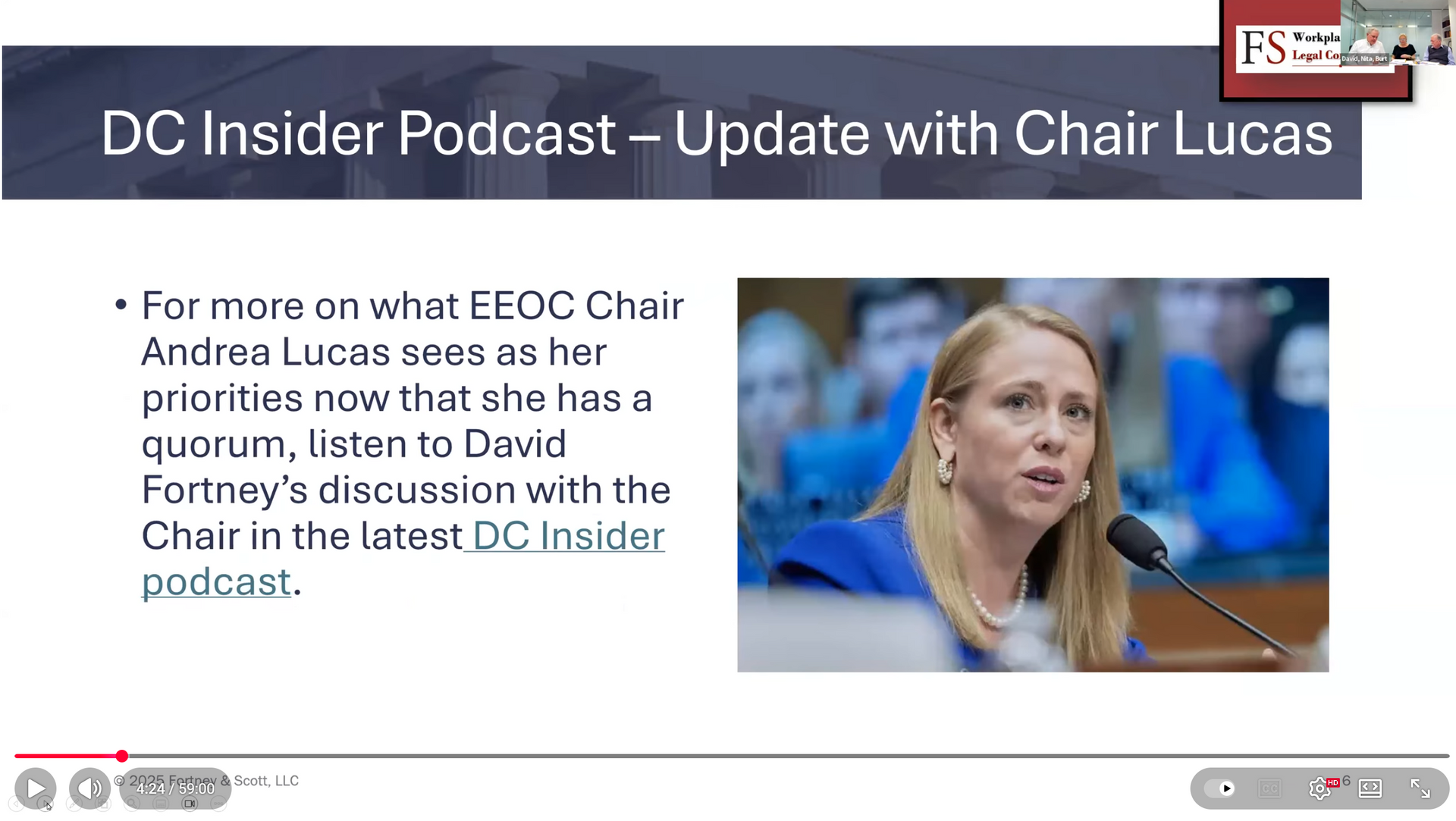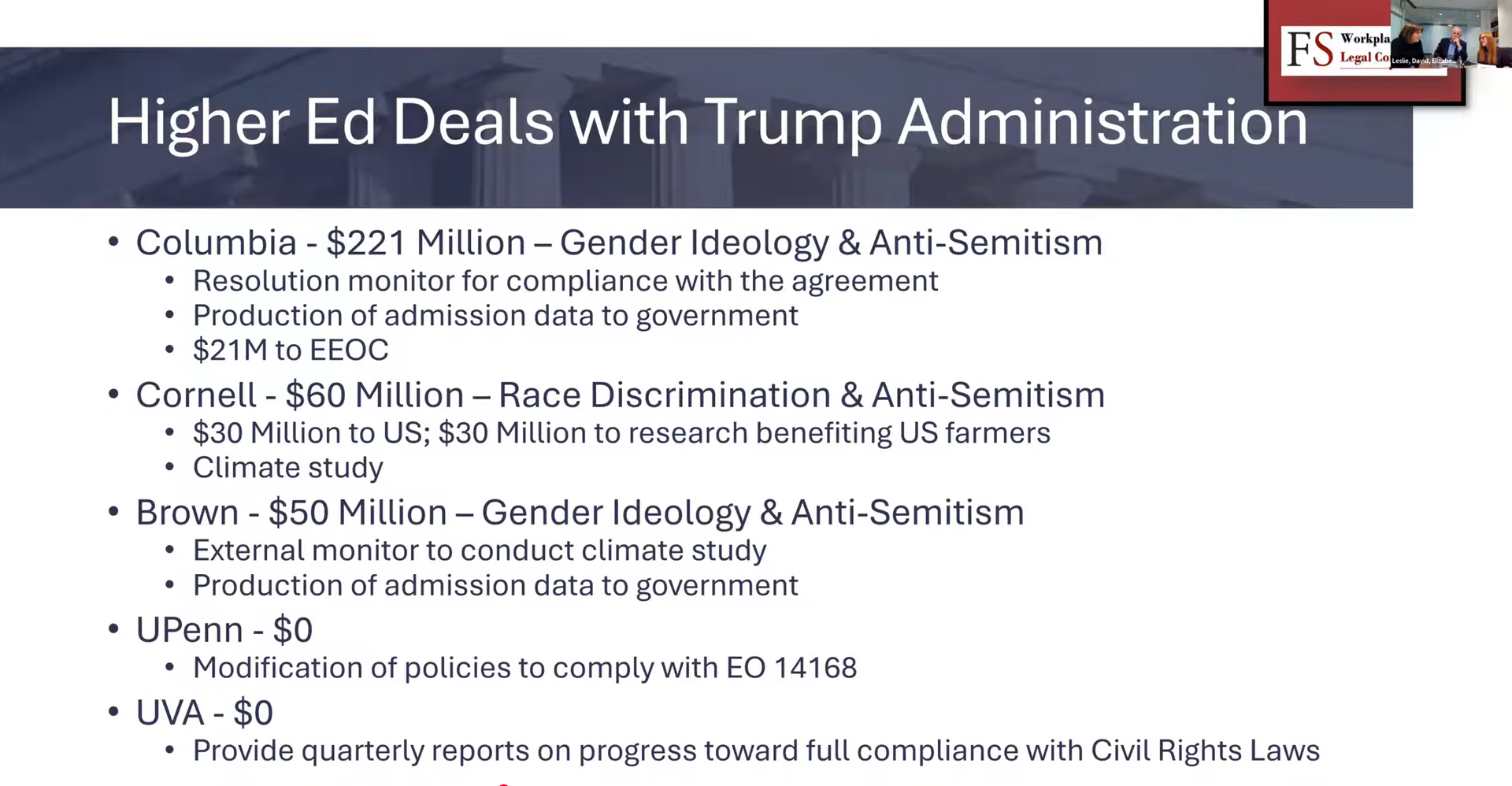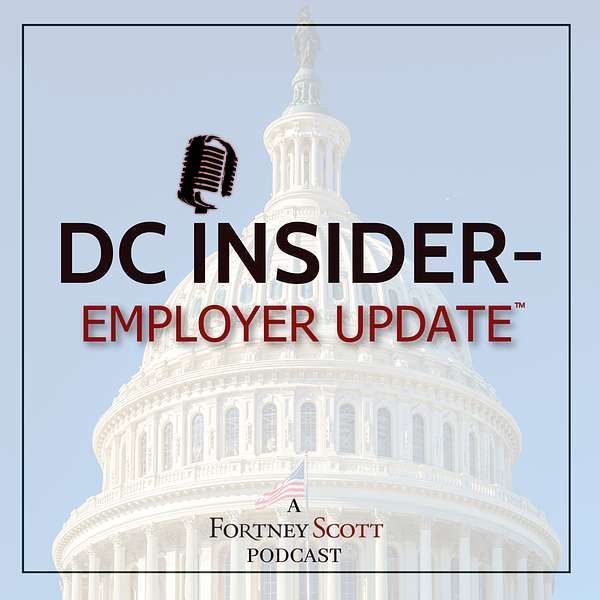EEOC Substantially Revises Key Components of its COVID-19 Guidance
OVERVIEW: EEOC quietly revised its COVID -19 guidance on July 12, 2022. In its latest update the Commission clarifies its view on several important issues for employers, announcing that the agency will apply pre-pandemic interpretations of ADA and Sections 503 standards to COVID-19 viral screening testing of employees which had been relaxed in response to the pandemic. These changes impact how employers must respond to pandemic-related issues making it even more challenging for employers who are grappling with reopening offices in the midst of another surge.
EEOC Guidance on COVID-19 Guidance
EEOC issued technical assistance guidance to provide answers to questions that frequently arise in the workplace during a pandemic beginning in March 2020. Since that time, EEOC has periodically updated What You Should Know About COVID-19 and the ADA, the Rehabilitation Act, and Other EEO Laws in response to new and emerging legal issues.
Here are some key takeaways from EEOC’s most recent update:
Major Changes involve Testing
- Mandatory viral testing must meet the business necessity standard. EEOC had previously permitted employers to mandate COVID-19 viral testing as a screening measure, without requiring any additional showing. Due to changes in the pandemic EEOC will now apply its a pre-pandemic ADA standard that viral testing be job related and consistent with business necessity. Employer mandated viral testing will meet the “business necessity” standard, according to the revised guidance, so long as it is consistent with the guidance from the CDC, DFA or state/local public health authorities current at the time of testing. (EEOC Guidance A.6 and G.1)
- Employers are prohibited from requiring antibody testing. Employers cannot require their employees to undergo antibody testing as a condition to reenter the workplace. Based on the CDC guidance, EEOC reasons that since an antibody test may not show whether or not an employee has a current infection or is immune to infection employer mandated antibody testing cannot meet the “business necessity” standard. (EEOC Guidance A.7)
- Pre-employment screening must comply with existing ADA standards. Once an employer has made a conditional job offer it may screen job applicants for symptoms of COVID-19, so long as the employer screens all entering employees performing the same type of job. An employer may also screen all applicants at the pre-offer stage if the employer is screening everyone (employee, applicant, contractor or visitor) entering the worksite for COVID-19 before permitting entry. (EEOC Guidance C.1)
Return to Workplace Clarifications
- Pandemic may cause excusable delays employers’ reasonable accommodation process. EEOC had previously acknowledged that circumstances surrounding the pandemic may interfere with employers responding expeditiously to an employee’s request for accommodation. In the recent update, EEOC notes that evolving circumstances, including, an onslaught of reasonable accommodation requests following an employer’s announcement of a return to the office, can justify delays in reasonable accommodation process and encourages employers to find interim solutions to keep employees working. (EEOC Guidance D.17)
- Mandatory personal protective equipment & related infection control measures subject to reasonable accommodation. Employers are permitted to require workers to wear personal protective equipment and observe other infection control practices so long as they engage in the reasonable accommodation process with workers who requests reasonable accommodation due to disability or religious accommodation. (EEOC Guidance G.2)
- Examples of reasonable accommodations that may reduce direct threat. The guidance provides examples of reasonable accommodations that could be deployed during the pandemic in order to reduce the direct threat to the employee or others in the workplace including enhanced protective gowns, masks, or gloves. Additionally, employers should consider enhanced protective measures like HEPA filtration systems; erecting barriers between employee and others; telework or other modifications of work schedules. (EEOC Guidance G.5)
- Providing information about employers’ accommodation process to all employees. It is a best practice for employers to provide information on their reasonable accommodations process for disability and accommodations due to sincerely held religious beliefs prior to returning to the office (EEOC Guidance G.6) and to provide additional flexibility for older workers as the risk of severe illness from COVID-19 increases with age. (EEOC Guidance H.1)
Ability to Cancel Job Offers
- Limited circumstances in which a job offer may be lawfully rescinded. If a newly hired employee tests positive, has symptoms or has been exposed to COVID-19, an employer can rescind their job offer if they need the new employee to start immediately and that employee would be in close proximity to others, whether at the workplace or elsewhere. (EEOC Guidance C.4)
- Job offers may not be withdrawn because of concerns about increased risk. Employers may not postpone the start date or withdraw a job offer due to concerns that the individual is older, pregnant, or has an underlying medical condition that puts the individual at increased risk from COVID-19. (EEOC Guidance C.5)
EEOC Guidance Continues to Support Vaccinations
- Mandatory vaccinations are still acceptable. The guidance reiterates that employers are permitted to require that their employees be vaccinated and to require employees to provide documentation of their vaccination, subject to reasonable accommodation and confidentiality requirements. (EEOC Guidance K.1, 4, 5)
- No limit on employer incentives for voluntary vaccinations administered by unaffiliated health-care provider. Presumably in an effort to eliminate any ongoing confusion caused by the Commission’s continued delay in issuing a new Wellness rule, the guidance states clearly that there is no limit on the incentives (including both rewards and penalties) that an employer may provide to employees who voluntarily receive a COVID-19 vaccination, from a health care provider that is not affiliated with the employer. (EEOC Guidance K.16)
Next Steps
The updated Guidance requires employers to walk a fine line as they work on returning their workforces to the workplace. Feel free to reach out to any of the FortneyScott attorneys with questions.
















